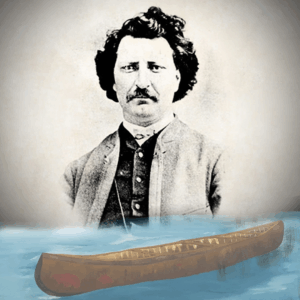Resistance and the Red River rebellions

One of the most significant figures in Métis history is Louis Riel, a political leader, spiritual visionary and fierce defender of Métis rights. In 1869, when Canada attempted to take over the Red River territory without consulting its people, Riel led a peaceful resistance that resulted in the creation of Manitoba, with protections for Métis language and land rights—at least on paper.
Despite this victory, the government failed to uphold its promises. The Métis were increasingly displaced, harassed and dispossessed of their land. This led to the Northwest Resistance of 1885, where Riel once again stood with his people. The resistance was crushed, and Riel was hanged for treason—a deeply traumatic event for the Métis and Indigenous peoples more broadly. But Riel’s legacy lives on. Today, he is recognized as a Father of Confederation and a hero of Indigenous resistance.
Louis Riel’s life and death symbolize more than just political conflict—they represent the Métis struggle for recognition, justice and belonging in a country that too often tried to erase them. His legacy lives on in every Métis person who carries their culture with pride, in every act of resistance and in the ongoing movement toward self-determination and truth. Remembering Riel is not just about honouring the past—it’s about fueling the future.



